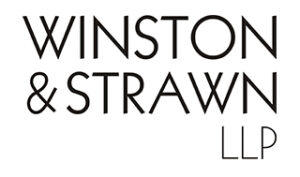While the US remains a top destination for foreign investment, certain laws and regulations create challenges for foreigners seeking to conduct business there. Failure to comply with these laws and regulations can lead to civil and criminal penalties, substantial administrative burdens, legal expense, and unsatisfied business objectives. This article discusses some of the key challenges companies face when investing in the US, and certain antitrust compliance risks that Japanese investors in particular may face.

Co-Executive Chairman
Tel: +1 212 294 4698
Email: jkessler@winston.com
Mergers and acquisitions
Section 7 of the Clayton Act, the main substantive US antitrust law governing mergers, prohibits any corporation or person from acquiring, directly or indirectly, the stock or assets of another corporation where the effect of the acquisition may be substantially to lessen competition, or tend to create a monopoly.
The Hart-Scott-Rodino (HSR) Act is the primary procedural law governing the antitrust review of mergers. It creates a process whereby transactions of a certain size must be reported to the Federal Trade Commission (FTC) and the Antitrust Division of the Department of Justice (DOJ) before they are completed. Transacting parties that meet the HSR’s size-of-transaction and size-of-person thresholds must file notification forms with the government and observe a statutory waiting period before they can consummate the transaction. Reportability under the HSR Act does not depend on whether the transaction poses any substantive antitrust issues.
The FTC and the DOJ share enforcement of section 7 of the Clayton Act, and of the HSR Act, and either agency may review or challenge a transaction. The question of which agency will review a given transaction depends largely on tradition, and the expertise each agency has developed in particular industries. State attorneys general also have express power, under the Clayton Act, to independently sue to enjoin a merger. They typically “piggyback” on the review conducted by the federal agency, due to their more limited resources. Historically, states have tended to intervene on issues in the technology, higher education and healthcare sectors, and to focus on representing their local interests in the regulatory review.
Most merger challenges are horizontal in nature and evaluate likely anti-competitive effects in each relevant antitrust market. Some challenges involve vertical concerns, usually focused on information exchange issues and the ability of the combined entity to disadvantage competitors of one party. The government and transacting parties may negotiate a remedy, typically a divestiture, or the government, states or private parties may sue to block the transaction.
Transactions that are not reportable under the HSR Act, as well as those that are reported and cleared, can later be challenged under section 7, or other antitrust laws. The FTC and the DOJ regularly monitor deal reports to stay apprised of non-reportable transactions, and they take complaints from customers and other third parties.
Japanese companies contemplating a transaction with a US nexus should first consult with experienced US antitrust counsel.

Co-Chair of the Antitrust/Competition Practice
Tel: +1 212 294 4609
Email: ewcole@winston.com
Investment committee
Corporate transactions resulting in non-US ownership or control of a US business are reviewed for national security concerns by an inter-agency governmental group known as the Committee on Foreign Investment in the United States (CFIUS). The CFIUS can put restrictions on transactions that fall short of blocking it. Assessing what may concern the CFIUS, and how best to address that risk, are important steps in any proposed acquisition or investment involving non-US investors.
US businesses that either (1) collect or maintain sensitive personal data of US citizens, or (2) produce, test or develop critical technologies, are considered a particular national security risk for the US government. Sensitive personal data include certain identifiable data (e.g., financial data that could be used to determine an individual’s financial distress or hardship, data in a consumer report, or individual health data) and certain results of an individual’s genetic tests.
Critical technologies include: defence articles and services included on the US munitions list; certain items included on the commerce control list; certain nuclear-related facilities, equipment, parts, components, materials, software and technology; certain agents and toxins, including certain items under the Export Administration Regulations; and emerging and foundational technologies controlled for export pursuant to the Export Control Reform Act of 2018.
Mandatory filings to the CFIUS are required for certain transactions where the transaction would result in a sufficiently substantial interest, or where certain regulated technologies are implicated. Filing to the committee, if successful, may lead to a safe harbour – where the government cannot order a divestment post-acquisition.
Japanese companies looking to invest into the US should conduct a thorough investigation into the target company, including into its intellectual property, technology, market share, whether it is a supplier to the US government or located near a US military base, and whether the deal involves cybersecurity or personal data. Experienced US counsel can help companies assess how to address potential CFIUS concerns, and how to fully comply with procedural requirements to avoid mis-stating or omitting material information.
Export and trade controls
Export control regimes promote US national security, foreign policy and domestic economic interests by restricting or imposing requirements on the transfer of designated goods, technical information, and services to non-US persons or destinations. These include the US State Department’s International Traffic in Arms Regulations (ITAR) and the US Commerce Department’s Export Administration Regulations (EAR) and Foreign Trade Regulations (FTR).
Economic and trade sanction regulations prohibit or restrict transactions with designated countries or their nationals that are reasonably believed to pose a threat to US national security, foreign policy or the economy. Trade restrictions also target transactions with a growing number of terrorist organisations, drug traffickers, and other persons identified for any reason as a prohibited party. The US Treasury Department’s Office of Foreign Assets Control (OFAC) administers these regulations.
Anti-boycott laws administered by the US Commerce Department and Treasury Department prohibit companies from complying with non-US sanctioned boycotts by foreign countries, such as the Arab League boycott of Israel.
US trade controls are complex and aggressively enforced. Failure to comply can lead to civil and criminal penalties, and substantial administrative burdens and legal expense. Japanese companies considering transactions that may be implicated by these rules should do so only after careful consultation with qualified legal counsel.

Partner
Tel: +1 202 282 5274
Email: hlamberg@winston.com
Antitrust considerations
Once a company is doing business in the US, it must comply with a variety of laws and regulations. One area of particular concern is antitrust, which seeks to promote competition and protect consumers. The principal federal statutes that prohibit anticompetitive conduct are the Sherman Act, Clayton Act, and FTC Act. The antitrust laws are enforced by the FTC and the DOJ’s Antitrust Division, as well as by private plaintiffs.
Individual states also have separate unfair competition laws, which largely mirror federal laws, but may prohibit additional conduct. State attorneys general and private plaintiffs enforce state antitrust laws. Private parties who sue to recover damages can receive an amount equal to three times their damages plus attorneys’ fees and costs. They may also obtain injunctive relief.
Section 1 of the Sherman Act prohibits unreasonable contracts, combinations or conspiracies in restraint of trade. A section 1 violation requires an agreement, which can be formal or informal. The degree of formality of the agreement is not what determines its legality, and proof of a “gentlemen’s agreement”, or even an implied understanding, may suffice.
Traditionally, horizontal restraints – agreements between or among competitors – have been considered the most serious of antitrust violations. The DOJ has exclusive jurisdiction to criminally prosecute unlawful agreements, which are considered illegal regardless of the economic rationale or the consequences. These include naked agreements between competitors to fix prices or restrict output, rig bids, and allocate markets or customers. Criminal violations carry a maximum fine of twice the gain or loss from the crime, or US$100 million for companies and US$1 million for individuals. Individuals may also be sentenced to up to 10 years in prison.
Other types of antitrust violations are enforced civilly and generally analysed under the rule of reason standard, balancing anti-competitive harm with pro-competitive justifications. These include other agreements restraining trade, including vertical agreements between parties occupying different levels in the chain of distribution.
Section 2 of the Sherman Act prohibits monopolisation, attempted monopolisation, and conspiracy to monopolise trade. A monopolisation claim requires that the defendant possesses monopoly power in the relevant market and has acquired, enhanced or maintained that power by exclusionary conduct.
The FTC Act prohibits unfair or deceptive acts or practices in or affecting commerce, and provides the FTC with the power to investigate and enjoin such conduct. The Clayton Act prohibits anti-competitive tying and exclusive dealing arrangements in some circumstances, as well as certain interlocking directorates. Violations are prosecuted civilly, including by private parties.
Experienced US counsel can help companies mitigate risk, including antitrust risk, by implementing effective compliance programmes. Where a company has followed best practices, but violates the law nonetheless, the government may be willing to agree to a reduced sentence, or even decide not to file criminal charges. The DOJ’s guidance instructs companies to ensure that their compliance programmes are specifically tailored based on their industry, risk profile, and the regions in which they operate.

Jeffrey L Kessler
Co-Executive Chairman
Tel: +1 212 294 4698
Email: jkessler@winston.com
Eva W Cole
Co-Chair of the Antitrust/Competition Practice
Tel: +1 212 294 4609
Email: ewcole@winston.com
Heather P Lamberg
Partner
Tel: +1 202 282 5274
Email: hlamberg@winston.com
Winston & Strawn
200 Park Avenue
New York, NY 10166-4193
The United States of America
www.winston.com






























